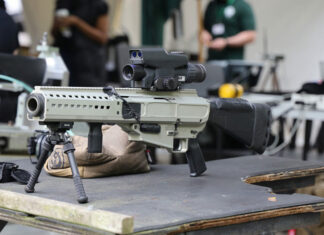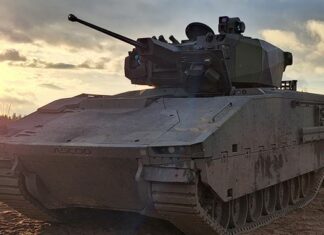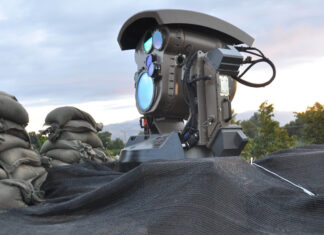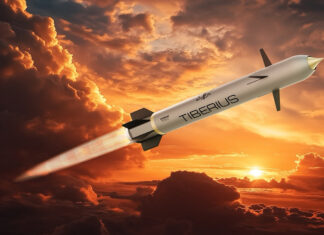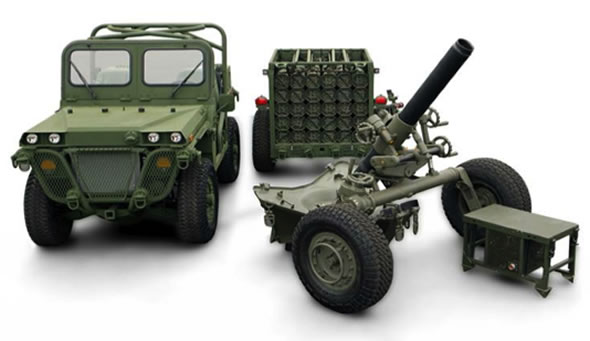
ATK and General Dynamics Ordnance and Tactical Systems (GD-OTS) have both announced they will submit bids for the Marine Corps’ requirements for the rifled, 120mm Precision Extended Range Mortar (PERM). The Marine Corps is planning to award contracts for the PERM development and demonstration phase, by mid-2012 with demonstration tests expected by 2014 and production contract awarded in 2015.
On October 4 ATK announced it will be teaming with GD-OTS to offer a full-up solution for the U.S. The new guided munition will provide the Corps’ Expeditionary Fire Support System (EFSS) towed-mortar the option to engage point targets from ranges of 16 – 20km. ATK announced it will be the prime contractor to the USMC for the PERM Engineering and Manufacturing Development (EMD) program, providing the guidance fuze technology, to be combined with the propulsion and warhead subsystems delivered by General Dynamics. ATK is already providing a similar solution for the U.S. Army 120mm mortars.

Three days later, GD-OTS also announced it will also submit a proposal for the PERM program, positioning itself as a prime contractor for the program. For its bid GD-OTS will employ its own technologies, already demonstrated with mortar munitions, such as the Roll Control Guided Mortar (RCGM) and Extended-Range Rocket-Assisted Propulsion system. The 120mm RCGM provides a low-cost guided mortar solution, as it employs a standard M934A1 mortar warhead and M734A1 fuze components, and patented Roll-Controlled Fix Canard (RCFC) technology. It uses GPS guidance to provide an effective, truly affordable precision-strike capability. In March 2011, General Dynamics successfully guided 120mm mortar rounds to less than 10 m CEP at both minimum and maximum range in test firings at the Yuma Proving Grounds, Arizona. All live test rounds detonated successfully and were demonstrated in proximity, point detonate and delay fuze modes. In October 2009, the company also successfully demonstrated 120mm rocket-assisted mortars fired from the M327 rifled mortar at ranges from 17 to 18 km. General Dynamics has been marketing and supporting the 2R2M 120mm (M327) rifled mortar selected for the EFSS. The mortar was originally built by the TDA Armaments, a joint venture between France’s Thales and the European Aeronautic Defence and Space Co. (EADS).
In service with the marine Corps since 2009, the EFSS is a light, mobile and air-transportable mortar system designed for missions requiring tactical versatility, speed, and close-in fire support. The system is composed of a pair of Prime Mover vehicles, the 120mm M327 weapon, the four-round family of munitions and an ammunition trailer. It is designed to be internally transportable in the MV-22B Osprey and the CH-53 helicopter. GD-OTS is currently producing the ammunition for this mortar system. The current M-327 ammunition suite utilizes a standard Insensitive Munition (IM) based High Explosive (HE), Smoke, Illumination and Practice rounds, offering an effective range of 8.2 km. The standard fuse fitted to the projectiles provides point detonation or airburst capabilities.





